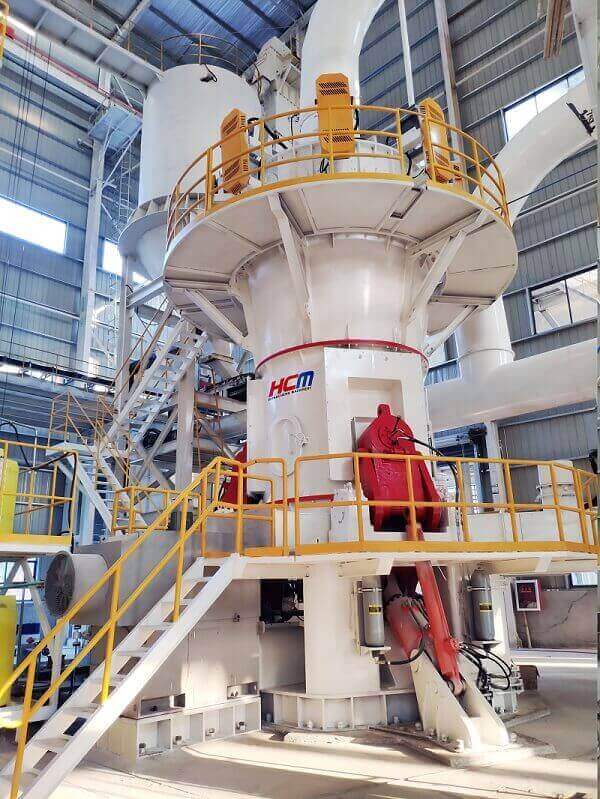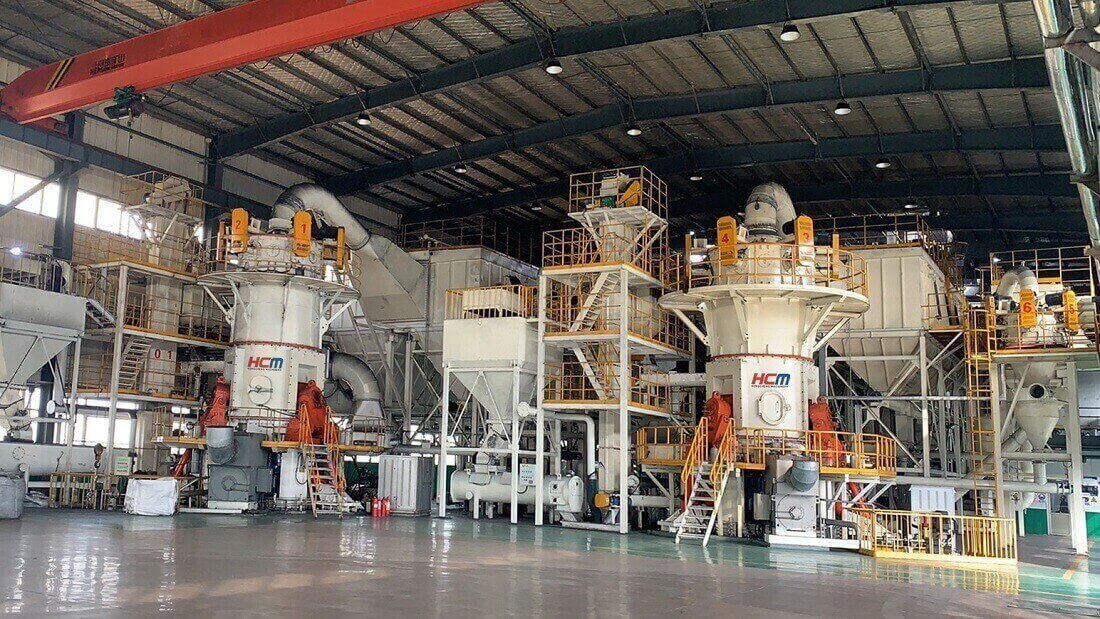Welcome to Guilin HCM Machinery Official WebSite!
Release date: 2023-11-24 09:18:45
There are two processes for calcining and grinding natural gypsum: one is to burn first and then grind, such as rotary kiln calcining, where the particles can be calcined first and then ground; the other process is to grind first and then burn, which is widely used in China, such as continuous wok, Conical wok, continuous rotary kiln, intermittent rotary kiln, boiling furnace, etc. Grinding and calcination are the main factors affecting the performance of natural gypsum in the production of building gypsum. So what kind of grinder is best for natural gypsum? As a manufacturer of natural gypsum grinding mills, HCM will introduce to you today the impact of grinding natural gypsum on the performance of building gypsum.

Effect of grinding natural gypsum on the properties of building gypsum: The particle size of gypsum has a great influence on the calcining process and the phase composition of the calcined product. The quality of calcination is closely related to the grinding of raw materials. Since gypsum is a poor conductor of heat, uneven grinding of gypsum will result in differences in the degree of calcination. When uniform powder is used as raw material, it is easy to form a single phase; the greater the difference in the particle size of the raw material, the more difficult it is to calcine into single-component semi-hydrated gypsum, because smaller particles also need to be calcined until the core of very large particles does not contain any dihydrate compound. Therefore, fine particles will be over-burned during rapid fire calcination; and when calcined with warm fire, the treatment time for coarse particles will be too long, and the quality of plaster of paris cannot be guaranteed and it is uneconomical. Because the dehydration time increases with the square value of the raw material gypsum particle size, there is no need to use too much heat energy for fine particles.
In order to improve product quality, many flour mills adopt the "two grinding and one burning" process, that is, they are ground before and after calcination. Especially for gypsum powder after gypsum processing and calcining, if it is ground again, it will be as good as the first time. The homogenization process can improve the properties of plaster of paris. Because during the secondary grinding, the undehydrated dihydrate gypsum remaining in the core of the particles can be exposed, and the natural gypsum mill grinds the dihydrate sulfuric acid under the action of the heat generated by the friction and impact of the grinding roller or impact hammer. The calcium is further dehydrated, and the soluble anhydrite combines with water vapor, both of which are converted into semi-hydrated gypsum, thus improving the quality of the product. So, what kind of grinder is best for natural gypsum?

The fineness of building gypsum is one of the important indicators of product quality. Within a certain fineness range, the strength of the product increases as the fineness increases; after exceeding a certain value, the strength will decrease. This is because the finer the particles, the easier they are to dissolve and the greater their degree of supersaturation. When the supersaturation increases beyond a certain value as the fineness increases, the gypsum hardened body will generate greater crystallization stress, destroying the hardened body structure and causing a decrease in structural strength. Therefore, there is no need to blindly pursue the fineness of building gypsum, which is generally 100 to 120 mesh.
Plaster of paris for special purposes such as molds and medicines has higher fineness requirements, some reaching 325 mesh or higher. Many researchers have found that the performance of building gypsum is not only related to fineness, but also to the combination of particle sizes. Good particle gradation can greatly improve the performance of building gypsum, which should also be paid attention to. So, what kind of grinder is best for natural gypsum? The HLM series natural gypsum grinding mill produced by HCM is an ideal equipment for grinding natural gypsum to produce building gypsum.HLM series natural gypsum mill is an advanced energy-saving grinding equipment developed by HCM after more than 20 years of painstaking research and development. It integrates drying, grinding, grading and transportation. It has high grinding efficiency and electric power. It has the advantages of low consumption, large feed particle size, easy adjustment of product fineness, simple equipment process, small footprint, low noise, low dust, easy use and maintenance, low operating costs, and low consumption of wear-resistant materials.
The material stays in the mill for a short time, reducing repeated grinding. The product has uniform particle shape, narrow particle size distribution, good fluidity and strong adaptability, and is more suitable for the process of calcining and grinding natural gypsum. If you have the need to grind natural gypsum, you need to purchase a natural gypsum grinding mill. Welcome to contact us for equipment details, email address:mkt@hcmilling.com